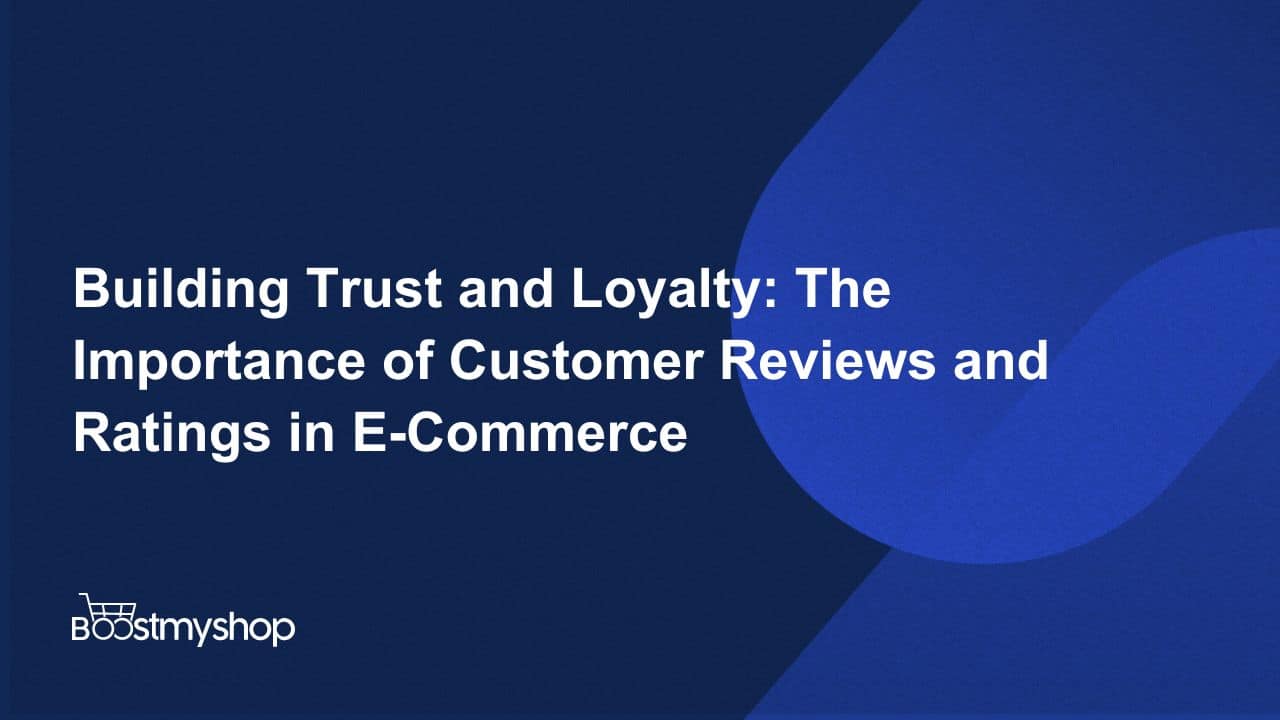Building Trust and Loyalty: The Importance of Customer Reviews and Ratings in E-Commerce
The Importance of Customer Reviews in E-Commerce (2025 Edition)
Introduction
In 2025, customer reviews aren’t just social proof they’re business currency. With AI-driven recommendations and endless shopping options, consumers now rely more than ever on real experiences from peers before clicking “buy.” Reviews influence not only conversions but also brand reputation, SEO visibility, and customer loyalty.
In this guide, we’ll explore:
-
Why reviews matter more than ever in today’s digital marketplace
-
How they shape customer trust and purchase decisions
-
Smart strategies to collect, showcase, and respond to reviews
-
Compliance considerations around incentives
-
Tools that amplify your reputation and competitiveness
Pairing strong review strategies with intelligent tools like Dynamic Pricing Software helps businesses stay competitive on both trust and price positioning.
Why Customer Reviews Matter in 2025
-
Social Proof in the Age of Choice: With AI-driven product suggestions everywhere, shoppers filter options by what others say. A 4.5 product with 300+ reviews beats an ad campaign any day.
-
Trust at Scale: 90% of shoppers still trust online reviews as much as personal recommendations. This hasn’t changed but expectations for authenticity have skyrocketed.
-
SEO Boost: Search engines reward fresh, authentic content. Reviews act as user-generated SEO fuel, improving ranking and click-through rates.
How Reviews Influence Buyer Behavior
-
Confidence Building: Reviews reduce perceived risk and hesitation, making customers feel reassured.
-
Brand Differentiation: Positive reviews create a moat when competing against marketplaces or low-cost rivals.
-
Retention & Loyalty: Responding to reviews especially negative ones shows customers you listen and care, leading to repeat purchases.
Strategies for Collecting Reviews That Work in 2025
-
Ask at the Right Time: Trigger requests after delivery confirmation or a positive support interaction.
-
Multi-Channel Requests: Use email, SMS, and even in-app nudges to maximize response rates.
-
Micro-Incentives (With Transparency): Offer loyalty points, discounts, or exclusive content—but always disclose to keep reviews credible.
-
Streamline the Process: One-click star ratings, voice feedback, or integrated review widgets remove friction.
Showcasing Reviews for Maximum Impact
-
On Product Pages: Position reviews right next to pricing and CTAs to influence conversions.
-
Dedicated Testimonials Hub: Highlight case studies, long-form feedback, and video testimonials for B2B or high-ticket items.
-
User-Generated Content (UGC): Feature customer photos/videos in galleries and ads for added authenticity.
Managing Reviews the Right Way
-
Respond Publicly: Acknowledge both praise and complaints transparency builds trust.
-
Flip Negatives Into Positives: Address issues with empathy and solutions; future buyers see this as proof of strong support.
-
Monitor Trends: Use sentiment analysis tools to detect recurring issues and improve operations.
The Compliance Factor: Incentives & Legality
Rewarding reviews is effective, but rules matter.
-
Allowed: Loyalty points, discounts, or contests with disclosure.
-
Not Allowed: Fake reviews or undisclosed paid endorsements (violates consumer protection laws).
Transparency ensures your reviews remain credible and keeps you legally safe.
Reviews + Pricing: A Competitive Edge
Reviews build trust. Pricing builds competitiveness. Together, they drive growth.
By combining customer feedback strategies with Dynamic Pricing Software, e-commerce businesses can:
-
Stay competitively priced across multiple channels
-
Align value perception with customer sentiment
-
Increase both conversion rates and profit margins
FAQ Section
Q1. How can I encourage customers to leave reviews?
Send timely reminders via email/SMS, highlight how quick the process is, and offer small loyalty rewards (with disclosure).
Q2. What should I do with negative reviews?
Respond quickly and professionally. Acknowledge the issue, provide solutions, and demonstrate commitment to improvement.
Q3. Is it legal to offer rewards for reviews?
Yes, but you must disclose any incentive to keep reviews transparent and compliant with consumer protection guidelines.
Q4. Do reviews improve SEO?
Yes—regular, authentic reviews boost keyword density, freshness, and relevance, which search engines reward with higher rankings.
Q5. Should I display reviews on all product pages?
Absolutely. Social proof works best when visible at the point of decision.



